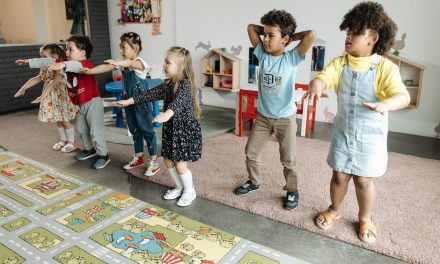Table of Contents
Igniting minds, fostering imagination: Libraries fuel a culture of reading.
Introduction
Libraries play a crucial role in promoting a culture of reading. They serve as valuable community resources that provide access to a wide range of books, magazines, newspapers, and digital materials. By offering a diverse collection of reading materials, organizing literary events, and providing educational programs, libraries encourage and foster a love for reading among individuals of all ages. Additionally, libraries serve as safe and inclusive spaces that promote literacy, knowledge, and lifelong learning, ultimately contributing to the development of a well-informed and engaged society.
The Importance of Libraries in Fostering a Love for Reading

The Role of Libraries in Promoting a Culture of Reading
Libraries have long been recognized as essential institutions in fostering a love for reading and promoting a culture of literacy. With their vast collections of books, magazines, and other reading materials, libraries provide a valuable resource for individuals of all ages to explore and engage with the written word. In this article, we will explore the importance of libraries in fostering a love for reading and the various ways in which they contribute to the development of a culture of literacy.
First and foremost, libraries serve as a gateway to knowledge and information. By providing access to a wide range of books and resources, libraries offer individuals the opportunity to explore different genres, authors, and subjects. This exposure to diverse reading materials helps to broaden one’s horizons and expand their understanding of the world. Moreover, libraries often organize book clubs, reading groups, and literary events that encourage readers to engage in discussions and share their thoughts and ideas. These activities not only enhance the reading experience but also foster a sense of community and connection among readers.
Libraries also play a crucial role in promoting reading among children and young adults. Research has consistently shown that early exposure to books and reading has a significant impact on a child’s cognitive and language development. By offering children’s sections with age-appropriate books and interactive learning materials, libraries create a welcoming and stimulating environment for young readers. Additionally, many libraries organize storytelling sessions, reading programs, and workshops that aim to instill a love for reading in children from an early age. These initiatives not only help children develop essential literacy skills but also cultivate a lifelong passion for reading.
Furthermore, libraries serve as a safe and inclusive space for individuals from all walks of life to access reading materials. In today’s digital age, where access to information is increasingly dependent on technology, libraries provide a vital resource for those who may not have the means or the skills to access digital content. Libraries offer free internet access, computer facilities, and e-book lending services, ensuring that everyone has equal opportunities to engage with reading materials. This inclusivity is particularly important in promoting a culture of reading among marginalized communities and individuals with limited resources.
In addition to their role in providing access to reading materials, libraries also contribute to the development of critical thinking and information literacy skills. Librarians are trained professionals who can guide individuals in navigating the vast sea of information available today. They can help readers evaluate the credibility and reliability of sources, teach them how to conduct effective research, and assist in developing effective reading strategies. By equipping individuals with these skills, libraries empower readers to become discerning consumers of information and active participants in the knowledge society.
In conclusion, libraries play a vital role in promoting a culture of reading and fostering a love for books. Through their diverse collections, community engagement initiatives, and inclusive services, libraries provide individuals of all ages and backgrounds with the opportunity to explore, learn, and connect through reading. As we continue to navigate the digital age, it is crucial to recognize and support the invaluable contributions that libraries make in nurturing a literate and informed society.
How Libraries Encourage Lifelong Learning Through Reading
Libraries have long been recognized as important institutions in promoting a culture of reading and lifelong learning. Through their vast collections of books, magazines, and other resources, libraries provide individuals with the opportunity to explore a wide range of topics and expand their knowledge. In this section, we will explore how libraries encourage lifelong learning through reading.
One of the key ways in which libraries promote lifelong learning is by providing access to a diverse range of reading materials. Libraries are not limited to just books; they also offer magazines, newspapers, and digital resources. This wide variety of reading materials allows individuals to explore different subjects and interests, fostering a love for reading and learning.
Libraries also play a crucial role in promoting literacy and reading skills. Many libraries offer programs and initiatives aimed at improving literacy levels in their communities. These programs may include reading clubs, storytelling sessions, and workshops on reading comprehension. By providing these resources and opportunities, libraries help individuals develop strong reading skills that are essential for lifelong learning.
Furthermore, libraries serve as community hubs for learning and intellectual engagement. They often host author talks, book clubs, and other events that encourage individuals to come together and discuss literature. These gatherings not only promote reading but also foster a sense of community and intellectual curiosity. By creating a space for people to connect and share ideas, libraries contribute to the development of a culture of reading and lifelong learning.
In addition to physical resources, libraries also provide access to digital resources and online platforms. Many libraries now offer e-books, audiobooks, and online databases, allowing individuals to access reading materials from the comfort of their own homes. This accessibility is particularly beneficial for those who may have limited mobility or live in remote areas. By embracing technology and offering digital resources, libraries ensure that reading and learning are accessible to all.
Libraries also play a vital role in promoting reading among children and young adults. Many libraries have dedicated children’s sections with age-appropriate books and interactive activities. These spaces are designed to spark a love for reading from an early age and encourage children to become lifelong learners. Libraries often collaborate with schools and educational institutions to promote reading and literacy among young people, further reinforcing the importance of reading as a lifelong skill.
Moreover, libraries serve as a valuable resource for individuals seeking information and knowledge. Librarians are trained professionals who can assist individuals in finding the right resources for their needs. Whether it’s researching a specific topic or finding reliable sources for academic purposes, librarians are there to guide and support individuals in their quest for knowledge. This personalized assistance ensures that individuals have access to accurate and reliable information, further enhancing their lifelong learning journey.
In conclusion, libraries play a crucial role in promoting a culture of reading and lifelong learning. Through their diverse collections, literacy programs, community events, and digital resources, libraries provide individuals with the tools and opportunities to explore new ideas, expand their knowledge, and develop a love for reading. By embracing technology and collaborating with educational institutions, libraries ensure that reading and learning are accessible to all, regardless of age or location. Libraries are not just repositories of books; they are vibrant spaces that foster intellectual curiosity and promote lifelong learning.
The Role of Libraries in Promoting Literacy and Education
Libraries have long been recognized as important institutions in promoting literacy and education. They play a crucial role in fostering a culture of reading and providing access to knowledge and information for all members of society. In this article, we will explore the various ways in which libraries contribute to promoting literacy and education.
One of the primary functions of libraries is to provide a wide range of books and other reading materials. By offering a diverse collection of literature, libraries cater to the interests and needs of different individuals, encouraging them to explore various genres and subjects. This exposure to different types of literature helps to develop a love for reading and expands one’s knowledge and understanding of the world.
Libraries also serve as a hub for learning and education. They offer a variety of resources, such as reference materials, research databases, and online resources, that support academic pursuits and lifelong learning. Students, researchers, and individuals seeking self-improvement can access these resources to enhance their knowledge and skills. Libraries often provide computer and internet access, bridging the digital divide and ensuring that everyone has equal opportunities to learn and grow.
In addition to providing access to reading materials and educational resources, libraries also organize various programs and activities that promote literacy and education. Storytelling sessions, book clubs, and author talks are just a few examples of the events that libraries host to engage readers and foster a sense of community. These activities not only encourage reading but also provide opportunities for individuals to discuss and share their thoughts on books and literature.
Libraries also play a crucial role in early childhood literacy. Many libraries offer programs specifically designed for young children, such as storytime sessions and early literacy workshops. These programs introduce children to the joy of reading from an early age and help develop their language and cognitive skills. By instilling a love for reading in children, libraries contribute to their overall educational development and future success.
Furthermore, libraries serve as safe and inclusive spaces for individuals of all backgrounds and abilities. They are places where people can come together, regardless of their age, gender, ethnicity, or socioeconomic status, to access information and engage in learning. Libraries often provide resources and services tailored to the needs of specific communities, such as language learning materials for immigrants or resources for individuals with disabilities. By catering to diverse populations, libraries ensure that everyone has equal opportunities to learn and grow.
In conclusion, libraries play a vital role in promoting a culture of reading and fostering literacy and education. Through their extensive collections, educational resources, and various programs and activities, libraries provide individuals with the tools and opportunities to develop a love for reading, enhance their knowledge, and engage in lifelong learning. As society continues to evolve, libraries remain essential institutions in promoting literacy and education for all.
Libraries as Community Hubs for Cultivating a Culture of Reading
Libraries have long been recognized as important institutions for promoting a culture of reading within communities. They serve as community hubs, providing access to a wide range of books and resources that encourage reading and learning. In this article, we will explore the role of libraries in cultivating a culture of reading and the various ways in which they serve as community hubs.
One of the primary roles of libraries in promoting a culture of reading is by providing access to a diverse collection of books. Libraries house a vast array of books, ranging from classic literature to contemporary fiction, non-fiction, and reference materials. This wide selection ensures that readers of all ages and interests can find something that captures their attention and encourages them to read.
Libraries also play a crucial role in promoting reading among children and young adults. Many libraries have dedicated children’s sections, complete with colorful and engaging books, storytelling sessions, and interactive activities. These spaces are designed to spark the interest of young readers and instill a love for reading from an early age. By providing a welcoming and stimulating environment, libraries encourage children to explore the world of books and develop their reading skills.
In addition to physical books, libraries have embraced technology to further promote reading. Many libraries now offer e-books and audiobooks, allowing readers to access a vast digital collection from the comfort of their own homes. This digital shift has made reading more accessible and convenient, particularly for those who may not have easy access to physical libraries. By embracing technology, libraries are able to reach a wider audience and promote reading in new and innovative ways.
Libraries also serve as community hubs for various reading-related activities and events. They often host book clubs, author talks, and literary festivals, bringing readers together to discuss and celebrate literature. These events not only foster a sense of community but also provide opportunities for readers to engage with authors and gain deeper insights into the books they love. By organizing such events, libraries create a vibrant reading culture and encourage lifelong learning.
Furthermore, libraries play a vital role in promoting literacy and education within communities. They offer resources and support for individuals of all ages who are seeking to improve their reading and writing skills. From adult literacy programs to homework help for students, libraries provide valuable assistance to those in need. By offering these services, libraries empower individuals to become confident readers and lifelong learners, ultimately contributing to the overall development of the community.
In conclusion, libraries are essential in promoting a culture of reading within communities. They serve as community hubs, providing access to a diverse collection of books and resources that cater to readers of all ages and interests. Libraries also embrace technology to make reading more accessible and convenient. Through various activities and events, they foster a sense of community and create opportunities for readers to engage with literature. Additionally, libraries play a crucial role in promoting literacy and education, providing valuable support to individuals seeking to improve their reading skills. Overall, libraries are invaluable in cultivating a culture of reading and fostering a love for books within society.
Q&A
1. What is the role of libraries in promoting a culture of reading?
Libraries play a crucial role in promoting a culture of reading by providing access to a wide range of books and resources, organizing reading programs and events, and fostering a love for reading among individuals of all ages.
2. How do libraries encourage reading among children and young adults?
Libraries encourage reading among children and young adults by offering age-appropriate books, hosting storytelling sessions, organizing book clubs and reading challenges, and collaborating with schools to promote reading as a lifelong habit.
3. What resources do libraries provide to support reading?
Libraries provide a variety of resources to support reading, including physical books, e-books, audiobooks, magazines, newspapers, and online databases. They also offer quiet reading spaces, research assistance, and access to technology for reading purposes.
4. How do libraries contribute to literacy development in communities?
Libraries contribute to literacy development in communities by offering literacy programs for adults, providing resources for English language learners, partnering with local organizations to promote literacy initiatives, and serving as a hub for educational resources and support.
Conclusion
In conclusion, libraries play a crucial role in promoting a culture of reading. They provide access to a wide range of books and resources, creating opportunities for individuals to explore different genres and expand their knowledge. Libraries also offer various programs and activities that encourage reading, such as book clubs, storytelling sessions, and author visits. Additionally, libraries serve as community hubs, fostering a sense of belonging and providing a space for individuals to engage in intellectual and cultural activities. Overall, libraries are instrumental in cultivating a culture of reading and nurturing a lifelong love for books and learning.




